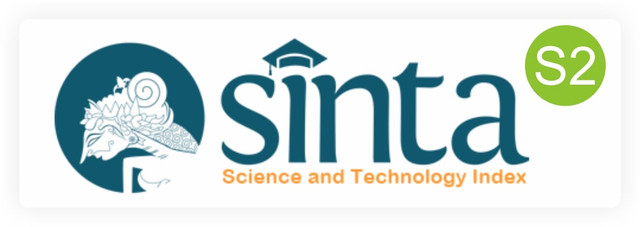Evaluation of adherence, distress and quality of life for type 2 diabetes melitus patients In Puskesmas Wedarijaksa I and Puskesmas Trangkil Kabupaten Pati
DOI:
https://doi.org/10.12928/pharmaciana.v8i2.10573Keywords:
type 2 DM, adherence, distress, quality of lifeAbstract
Diabetes mellitus is chronic disease that needs the complex and a long term medical treatment. Patient adherence and level of distress can affect patient quality of life. The purposes of this study is to examine patients adherence, distress, and quality of life patients type 2 diabetes mellitus in Kabupaten Pati. This study used cross sectional design and data patients collection techniques were conducted prospective data. The subjects of research were patients with Type 2 diabetes amounted to 126 people. Instruments used in this research is Medication Adherence Respon Scale (MARS) questionnaire to measure patients adherence, Diabetes Distress Scale (DDS) to measure distress, and EQ-5D-5L questionnaire to measure quality of life. Data analysis statistic used Mann Whiney test, and linier regression. This study was dominated by female patients 78.6%. The mean age of DMT2 patients was 54.49 ± 6.19 years. The average value of adherence (MARS) was 21.33 ± 2.90 including in moderate adherence. The mean total of DDS score was 1,56±0,42 including not distress level and the highest is the emotional burden domain. The mean value of EQ5D5L index was 0.729 ± 0.161. The results showed a significant association (p <0.05) between patient characteristics age and duration of sick with adherence. There were significant association (p <0.05) between age to physician distress, gender with emotional, marital status with emotional and interpersonal distress, duration of sick to physician distress and management therapy distress. Marital status and income had significant relationship to quality of life. Emotional burden domain had significant relationship to quality of life. Multivariate analysis showed that the relationship of adherence and distress by the emotional burden to quality of life. This study concluded the significant relationship between adherence, distress and quality of life.References
Ahmad, N.S., Ramli, A., Islahudin, F., Paraidathathu, T., 2013, Medication adherence in patients with type 2 diabetes mellitus treated at primary healthclinics in Malaysia, (online) Error! Hyperlink reference not valid.diaksespada 13 Maret 2018
Horowitz, Einav, M.D., Abadi, K., Ifat, Shani, Mordechai, Shemer, Joshua, M.D., 2010, EQ-5D as a Generic Measure of Health-Related Quality if Life in Israel: Reliability, Validity and Responsiveness, Israel Medical Association Journal,12(12): 715-720.
Huber, C.A., Reich, O., 2016, Medication adherence in patients with diabetes mellitus: does physician drug dispensing enhance quality of care? Evidence from a large health claims database in Switzerland, (online) https://www.ncbi.nlm.nih.gov/pmc/articles/PMC5029845/, diakes pada 13 Maret 2018
IDF, 2012, Women and Diabetes. International Diabetes Federation (online) http://riskesdas.idf.org/women-and-diabetes, diaksespada 14 Maret 2017
Jannoo, Z., Wah, Y, B., Lazim, A, M., dan Hassali, M, A., 2017, Examining diabetes distress, medication adherence, diabetes self-care activities, diabetes-specific quality of life and health-related quality of life among type 2 diabetes mellitus patients, J Clin Transl Endocrinol. 2017 Sep; 9: 48–54.
Molloy, G.J., Randall, G., Wilkman, A., Perkins-Porras, L., Messerly-Burgy, N., Steptoe, A., 2012, Type D personality, self efficacy, and medication adherence following and acute coronary syndrom, Phycosom Med, 74:100-106.
Rasdianah,N.,Martodiharjo,S.,Andayani,T,M.,Hakim,L.,2016, Gambaran Kepatuhan Pengobatan Pasien Diabetes MelitusTipe 2 di Puskesmas Daerah Istimewa Yogyakarta, Jurnal FarmasiKlinik Indonesia, 5(4): 249–257
Rizkifani, S., Perwitasari D.A., dan Supadmi W., 2014, Evaluasi Kepatuhan dan Kualitas Hidup Pasien Diabetes Mellitus Tipe 2 yang Mendapatkan Monoterapi Dan Kombinasi Antidiabetik Oral-Insulin di Rumah Sakit Umum PKU Bantul, Tesis, Fakultas Farmasi, Universitas Ahmad Dahlan, Yogyakarta
Perkumpulan Endrokinologi Indonesia (Perkeni), 2015, Konsensus Pengelolaan dan Pencegahan Diabetes Mellitus Tipe 2 di Indonesia, PERKENI, Jakarta.
Permana, Y, I., 2017, Hubungan Antara Lama Sakit Dengan Tingkat Stress Pada Pasien Diabetes Melitus di RSI Surakarta, Skripsi, Fakultas Ilmu Keperawatan,Universitas Muhammadiyah Surakarta, Surakarta.
Polonsky, W.H., Fisher,L., Earles,J., Duld, R.J., Lees, J., Mullan, J., & Jackson, R.A.,2005, Assessing Psychologycal Distress in Diabetes, Diabetes Care, 28: 626-631.
Pradana, D, L, C., 2013, Hubungan Kepuasan Terapi Diabetes dengan Kualitas Hidup Pasien Usia Lanjut Rawat Jalan di RSUP Dr. Kariadi Semarang, Tesis, Fakultas Farmasi, Universitas Gajah Mada, Yogyakarta.
Purba,F.,Hunfeld,J.A.M., Iskandarsyah,A., Fitriana,T,S., Sadarjoen, S., Ramos-Goni, J, M., Passchier, J., Busschbach J, J, V., The Indonesian EQ5D5L Value Set, Pharmacoeconomics, Nov, 35(11):1153-1165.
Soegondo, S., 2010, Buku Panduan Penatalaksanaan Diabetes Mellitus di Layanan Kesehatan Primer di Indonesia, Departemen Ilmu Kedokteran Komunitas, 4-6 Fakultas Kedokteran Universitas Indonesia, Jakarta.
Spilker, W., dan Crammer, J.A., 1998, Quality of Life and Pharmacoeconomics An Introduction, Lippincott-Raven Publisher, Philadhelpia, New York.
World Health Organization, 2003, Adherence to Long Term Therapies, http:// http://apps.who.int/iris/bitstream/10665/42682/1/9241545992.pdf diakses 10 Nopember 2016.
Downloads
Published
Issue
Section
License
Authors who publish with Pharmaciana agree to the following terms:
- Authors retain copyright and grant the journal the right of first publication with the work simultaneously licensed under a Creative Commons Attribution License (CC BY-SA 4.0) that allows others to share the work with an acknowledgment of the work's authorship and initial publication in this journal.
- Authors are able to enter into separate, additional contractual arrangements for the non-exclusive distribution of the journal's published version of the work (e.g., post it to an institutional repository or publish it in a book), with an acknowledgment of its initial publication in this journal.
- Authors are permitted and encouraged to post their work online (e.g., in institutional repositories or on their website) prior to and during the submission process, as it can lead to productive exchanges, as well as earlier and greater citation of published work.


1.png)











